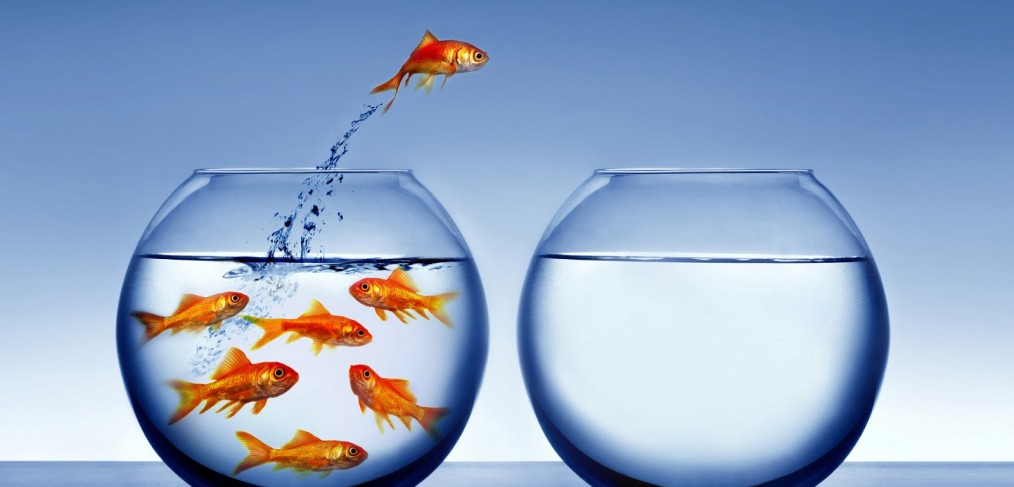What is free will? Is it the freedom to do as you will? This is what is implied. Does this mean we are free to flout the laws of the land? Obviously not, so there goes a bit of freedom. Or does it? Do we need to flout the laws of the land? Probably not. So is that now freedom reclaimed?
On a physical level free will does not really mean so very much. It’s a term, a theory, rather than a reality. Most people are driven by the demons of their childhood conditioning, and the emotional baggage they incarnate with, so any action resulting from this conditioning is certainly not free will. It’s not so easy to recognise free will, or to actually experience it.
So physically, free will is more a perception than a reality. How about the freedom to believe whatever we will? Do we have this?
Actually, if you have any beliefs from your childhood, teen years and as an adult, no, you have taken on a whole boatload of other peoples’ beliefs and made them yours. There’s nothing free about this! Consider your religious beliefs; if you are Anglican, then that is the basis of your spiritual beliefs – no freedom there. Catholic, Buddhist, Seventh Day Adventist, Baptist, Mormon, Fundamentalist, Muslim, these and a whole lot more are all religious beliefs that you inherit or accept with the religion. No free will at all. Generally, we grow up with our parents’ beliefs until, as adults, many of us attempt to get rid of them. Reaction, no free will here! Reaction to anything means no free will. Reaction is the abdication of freedom. Reaction is fear based, coming from the past; no freedom in this. It would seem that free will is rather difficult. Do you have the free will to stop thinking for one minute? Yes, you have the free will to try, but very few people have freedom from their own negative thoughts for more than a moment or so! You have the freedom to speak truthfully all the time, but do you do this, or is the price of such a freedom too high?
Free will, even mentally, is a nice concept but seldom a reality.
How about emotional free will? Sorry, but that is surely the most impossible of all. I facilitate 5-day intensives in a number of countries every year, and I have yet to witness what I consider to be true emotional free will. Nothing about us gets to be more conditioned than our emotions. We either suppress or deny them. Our reactions are usually more emotional than mental, even though thought precedes emotion. Emotionally, we are a very needy species, and abysmally poor at sharing our true feelings with each other. Do we have the free will to talk to people on the street, and say positive or loving things to each other? Well, we actually do have the free will to do this, but we are too inhibited to do it. Public speaking is considered one of our greatest fears. Why? Because we fear rejection and ridicule. This is automatic, no freedom of choice. Of course, we can overcome this, but most people never do. Anger is not emotional free will; it is emotional reaction.
Sorry, we are too emotionally conditioned for emotional free will.
So, the very idea of truly free will is getting bashed around a bit! Surely, we actually do have free will. We know that governments do not like us to have too much freedom of any sort, apart from conceptual freedom. We have a press that attempts to direct and control our thinking; we have politicians who attempt to convince us that their clever lies are actual truth. Every politician knows that it is not the truth that is important; it is our “perception” of the truth that matters. We are pushed and pulled mentally and emotionally by methods of advertising that use mind control; in fact, we live in a world that actively discourages true free will. We live in a world where consensus reality says, “My will be done, not yours. The only free will you have is what I allow you.”
Modern society is more about controlled will than free will.
One of the most common human conditions I encounter is self-criticism. A word about this; Oneness means all life is connected. Physics talks of the web-of-life; same thing. What this actually means is there is nothing outside Self. I do not mean the identity self, but the metaphysical Being you truly are. So in reality, whoever or whatever you criticise, it is you that receives its sting. If it is nasty negative criticism, it is you the venom poisons. Consider the boomerang principle; whatever you put out comes back. In essence, “all” criticism is self-criticism. Very few people can find the free will to end self-criticism. So much for free will! But it is possible. I do not criticise myself, although I used to, very heavily so. Self-criticism causes anxiety and depression, leading to heart disease and failing health, yet even this is not enough for us to find the free will to stop. Why not? Because our will is conditioned, not free. It’s the same with self-judgement, along with its old friend self-comparison. So many people bestow these conditions on themselves, knowing that it is to their overall detriment. Why? It makes no sense. Where is the free will to simply stop doing it? Why do we indulge in negative self-destruction? Whatever happened to free will?
Free will is not doing too well, is it? What free will?
Okay, enough; it’s time to showcase true “free will.” But let us be very clear about this, free will is a demanding choice. Yes, you can find the freedom to choose your thoughts, but it is not easy. Simple, but not easy!
First and foremost, free will demands that you live consciously. What’s that you say, you do live consciously? I doubt it. Most of the world’s population lives subconsciously between roughly ninety-three percent of each day. This means you! Think about it for a moment. Living subconsciously, you do not have free will. For better or worse, you are living from a program of the past . . . and it’s mostly worse! The good news is that, just occasionally, you indulge in original thinking, and the suddenly freed will suggests that it would be a good idea to erase the program of control. The moment passes, the program reasserts itself, and you decide that you will do it – tomorrow. And we all know that tomorrow never quite arrives!
Is it your free will in action when you decide to follow your “own” spiritual path? Or is this your long ago soul choice coming into its time? It is your conditioned subconscious program that causes you to procrastinate along the path of life. We really do sabotage most attempts we make to think freely, without any bias. Thinking freely does not mean thinking in the way we were taught at school, nor does it mean getting stuck in left-brain dominant thoughts. It means to allow your brain to become attuned to a higher energy, while new and creative thought flows through the brain’s receptive centres. Usually, we churn out thoughts from the transmit centre; seldom are we receptive.
I have found, oddly, that it takes great self-discipline to cultivate free will, yet you eventually reach the place where free will is disciplined by no discipline at all. I did say that it’s odd! It would seem that you have to battle the mind to gain the freedom to think positive selective thoughts, but this is not so. By battling the mind, you create the very opposition that you are battling. This is not the way. As I have said, it is required that you live consciously. Be aware of your thoughts, observe them rather than censure them. Once you have established a pattern of being conscious, you will find that by focussing on the elevation of your thinking, rather than allowing thoughts to go their own capricious way, your thoughts and thinking will become more free, more receptive, revealing insights into life and living that cause the heart to sing.
To truly exercise free will, your whole body, your whole Beingness, is, as it were, more fine-tuned than anything you have ever known. You begin to experience a freedom you had never imagined. Mostly – and we can all slip – you are able to respond to life’s situations, rather than react. Fear reacts, Love responds. Fear comes from the conditioned past, while Love comes only from the moment. When you respond to life, you find that this is a more joyous way to live, and the brain actually likes it, releasing the appropriate ‘happy’ enzymes and hormones to share its pleasure with the body. Mind you, this is whole-brain activity, not left-brain dominant.
The actuality of free will is very different from the concept of it. To actually live from free will becomes a bit of a joke. You ask yourself, just who does this free will belong to? Does it belong to me, the identity, as my own choice? Or, does it belong to a higher aspect of me that I call Self, and this so-called free will is actually the will of Self. And you ask, did I learn or find free will, or has it always been here… just out of reach. Have I gained free will because I have submitted to Self, and if I did this, just how free is my will?
Did I choose my spiritual path from free will? Did I unwittingly and unrelentingly put myself through so much pain and suffering to become enlightened from free will? Or, did the will of Self, the Being I am, re-assert itself at the most appropriate time in my present incarnation?
If life has taught me anything, it is that true free will is freely living from the will of Self. And the will of Self is spiritual growth. So free will is more of a surrender than an acquisition. I surrendered to a higher will than the will of my identity-self; the will I surrendered to is the will of the immortal Self I am.
I have played with the subject of free will and I have enjoyed it, but I have not written my words frivolously. I have presented what I consider some serious food for thought. Maybe I have shown you a good reason to surrender your free will to the freedom of will that is already awaiting you. But, you still have to get past that conditioned program!
Never mind – If I can, you can. Remember, you can only do it consciously!
Author: Michaels J. Roads – Wake Up World


